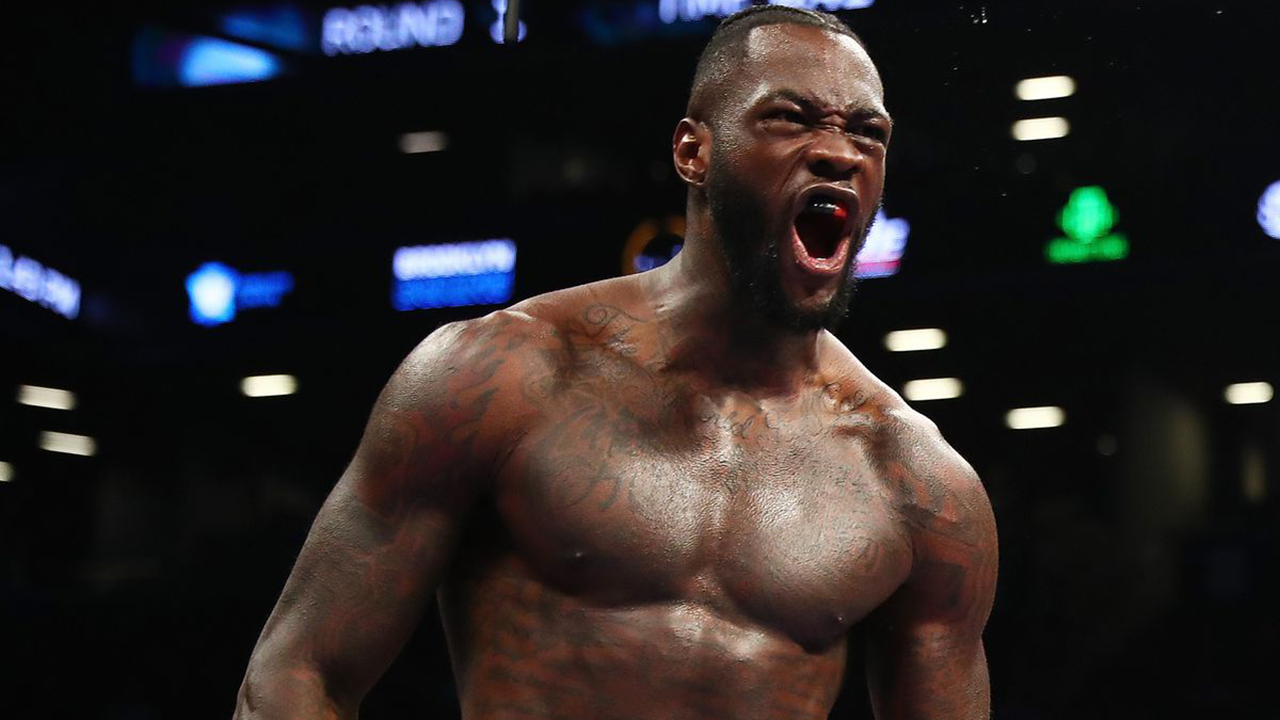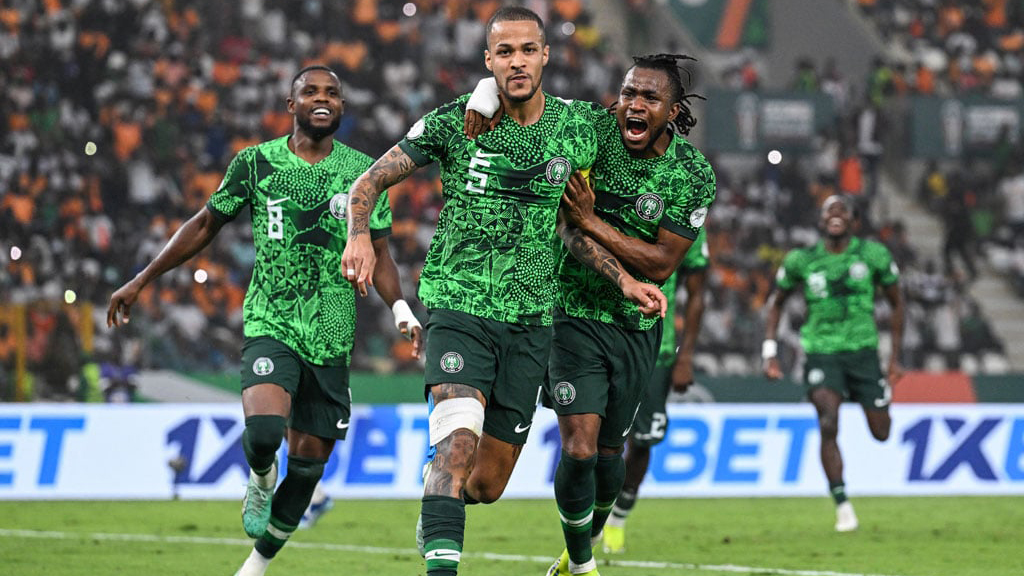Over the years, the North has failed to capitalise on its massive youth population for exploits. Some factors responsible for this include state governments’ apathy to grassroots sports development, poor infrastructure, and failure to understand the place of sports in national development, MURTALA ADEWALE reports.
For almost three decades, beginning from the late 1970s to the 1990s, Abbas Mohammed held Nigeria’s long-distance competitions by the jugular, winning all the available medals both locally and within the West African sub-region.
The 2:16:06 seconds national record, which he set on September 11, 1990, at a full marathon race in Lagos, is just a few minutes lower than the 2:06:50 seconds set by Ethiopia’s Belayneh Dinsamo on April 17, 1988.
Even then, many believed that if he had been given the necessary push, the gazelle-like Mohammed could have equalled or bettered Dinsamo’s record. Mohammed, alongside his alter ego, Yohana Waziri, was so good that he competed against the world’s best at the Seoul 1988 Olympic Games, Rome ’95 World Military Games, as well as the 1997 Summer Universiade Games held in Italy’s famous city of Sicily.
A frequent face at international races such as the Great London Marathon and the Los Angeles Marathon, alongside another Nigerian runner, Great Ishaku, Umaru Bukaboni was also in the mix, attempting to outpace some great runners. At some point, Mohammed was deemed just a push away from international greatness.
These great athletes were “given” to the country by northern Nigeria, which had a deliberate sports development structure that gave every child in the region the opportunity to develop their sports talents.
Apart from long-distance races, the North was also prolific in tennis, with Kaduna being one of the centres of tennis excellence in the country. The roll call of tennis luminaries from the region reads like a who’s who in the country’s honours list. They include former African champion and Olympian, Sadiq Abdullahi, and Muhammad Maccido Dalhat, from Zaria.
In boxing, Abdulkarim Haruna from Kano State was Africa’s best featherweight fighter in 1977 when he won the African Games gold medal at the Algeria edition of the Games, just as Solomon Ataga, a heavyweight fighter from Benue State, was a silver medallist at the World Military Boxing Championship, in Caracas, Venezuela, losing by the odd point to a Cuban in the final bout.
In athletics, wrestling, taekwondo, handball, hockey, basketball, and football, the North always had a strong representation in the national teams to such big championships as the Olympic Games, football’s World Cup, Commonwealth Games, and the African Games.
Sadly, since the turn of the century, the region, which gave Nigeria such world-renowned stars as Ahmed Musa, Masai Ujiri, Sunday Bada, Daniel Amokachi, Inua Rigogo, Bala Ali, Fatima Yusuf-Olukoju, Garba Lawal, the Atuegbu brothers, Dominic Iorfa, and Sam Garba Okoye, among others, has lagged in the production of international stars for the country.
For instance, at the 1996 Olympic Games, where Nigeria won its first individual gold medal through long jumper, Chioma Ajunwa, and Africa’s first football gold medal, the North contributed 11 athletes to the country’s team out of the 65 that flew the country’s flag.
Conversely, at the Tokyo 2020 edition of the Games, the North had only four athletes in Team Nigeria’s 55-man contingent, just as the region also contributed four athletes to the country’s 84-man contingent to Paris 2024.
Sports stakeholders believe that a region so blessed in human resources like the North is capable of dominating the sector if its leaders pay adequate attention to sports development. They cite the attitude of some state governors to grassroots development and the provision of basic infrastructure for the poor performance of the region in sports.
According to them, of the 19 states, apart from Kano, Kaduna, Plateau, Kwara, Benue, and to some extent, Nasarawa, the rest do little or next to nothing to empower the budding talents in the region to attain their best possible height.
A state like Gombe hardly participates in youth development events in the country, like the National Youth Games and the Milo Secondary School Basketball Championships, among others. At the last National Youth Games in Asaba, Delta State, the state failed to present a team.
It, however, sneaked into the medals list through a 13-year-old gymnast, Simone Munyal Kwairanga, who was privately sponsored to the Games by her parents. Kwairanga won three gold medals for the state.
The year before, when Delta State also hosted the seventh edition of the Games, Gombe State was represented by only its athletics team, which was sponsored by the chairman of Gombe State Athletics Association, Shuaibu Gara-Gombe.
Even when northern states participate in national sports meets, with the exception of Kano, Kaduna, Nasarawa, and Bauchi, they barely put up a fight in the Games, usually dominated by southern states.
For instance, while Delta, Edo, Bayelsa, Rivers, Lagos, Oyo, Akwa Ibom and Ogun states dominated the Edo 2020 National Sports Festival’s medals table with 158, 129, 56, 33, 32, 31, 20 and 16 gold medals respectively, Yobe, Katsina, Kebbi, Adamawa, Sokoto and Taraba states could not muster a single gold medal.
The pattern was repeated at the last edition of the National Sports Festival in Ogun State, where Benue, Yobe, Jigawa, Taraba, Adamawa, Sokoto, Kogi, Kebbi and Zamfara states failed to get a single gold medal each in a competition won, again, by Delta with 122 gold medals, followed by Bayelsa (92), Ogun (90), Rivers (74), Edo (63), Oyo (36) and Lagos (35).
Explaining the North’s sharp decline in sports, Kano State’s immediate past Director of Sports, Bashari Ahmed Maizare, said that poor infrastructure and inadequate funding have almost killed the sector in the region.
Maizare, who was once chairman of the Directors of Sports Forum of Nigeria, also pointed out what he called technical brain drain, poor talent recruitment, and weak motivation/welfare of staff, athletes, and other critical stakeholders in the sector, as major setbacks to sports development in the region.
Using Kano State to illustrate his position, Maizare said that the state has suffered from understaffing and migration of technical officials to better-paying states. “Many qualified coaches have been disengaged without replacement. We have an acute shortage of qualified coaching staff and technical officials in multiple disciplines.
“Again, a state like Kano has only one functional vehicle for the entire sports commission. There is a shortage of standard and modern sporting gear and kits, just as the welfare of athletes and motivation are poor. When you add delayed or absent reward systems for athletes and officials, you can see a system low in morale,” Maizare said.
Reports said that the 22 Kano State athletes, who lost their lives in a ghastly motor accident recently died because they were made to travel by night in a rickety bus on their way from the 2025 National Sports Festival.
Maizare insists that the situation calls for a review of the mode of transporting athletes to and from events. He also lamented that the system operates without programmes for the enhancement of the talents available in the state. “We don’t have an established or sustainable grassroots talent identification programme in Kano,” he said.
“There is also the absence of partnerships with schools, local clubs, or communities for feeder systems, which are essential for sports development from the grassroots.”
He said that sports can only grow in the north when the leaders invest in infrastructure, rehabilitate key facilities, and stimulate Public-Private Partnerships (PPP) for facility development and operation.”
Pointing at the lack of proper planning as also part of the ills that are dogging sports development in the North, Mazaire said: “Governments must allocate consistent and adequate budgets yearly to the sector, not just for competitions, but for training, equipment, athlete development, and research.
“This should be followed by an institutionalised insurance scheme for athletes and their officials, covering competitions and travels. Providing housing, education scholarships, and medical support to performing athletes will also help to motivate athletes to work hard for success.”
Alluding to the poor attitude of some northern state governors towards grassroots sports development, Musa Garba, a school sports enthusiast, said that denying children the opportunity to develop their talents would inadvertently lead them down undesirable paths, such as crime.
He said: “It is obvious that the governor of Gombe State is not interested in the National Youth Games because twice consecutively he failed to sponsor a contingent to the National Youth Games.
“Some of these governors don’t understand that they can use sports to keep children in school and in the process, solve one of the problems affecting the region now. If children understand how rich and popular sports can make them, I am sure most of them will take to sports instead of banditry.
“People like Ahmed Musa, Zaidu Sanusi, and Masai Ujiri are readily available role models that can be used to stimulate interest in sports.” Explaining the difference between success and failure in sports, former national marathon champion, Abbas Mohammed, said that constant training and participation in competitions help to nurture talents and give them the confidence to compete successfully outside their comfort zones.
He recalled: “When I was running, the World Record (WR) in marathon was 2.06.50 held by Ethiopia’s Belayneh Dinsamo. And my time then was 2:16:06, which I set in Lagos on September 11, 1990. If I had a sponsor then, and competed regularly around the world, I would have returned a better time and competed for the World Record.”
Mohammed revealed that one major thing that is working against athletes is a lack of planning. “We don’t plan in Nigeria, and that is killing our sports. That is why I always encourage our athletes, particularly the marathoners, not to wait for what somebody will do for them. If you continue to wait, you won’t go anywhere in your career.”
For a former African tennis champion, Sadiq Abdullahi, it would be difficult for the North to regain its position in Nigerian sports if systems are not put in place to ensure that students in northern schools participate in sports in schools and within their various communities.
He said that schools like Saint Paul/Kufena College and others were successful in interstate competitions because they had a system that provided for physical education.
Abdullahi said that reinventing the lost Arewa sports culture will involve a multi-faceted approach focusing on both on-field performance and off-field fan engagement, education, and marketing.
This, he added, could be done by revitalising the culture of competition that existed in the olden days, and providing “strong leadership to inspire and motivate the players, and also by adopting a clear vision, and effective strategies.”
He advised managers of sports in the North to focus on the growth of individual players and find a way of rebuilding fan loyalty and engagement, “especially the locals like we had back then. Create content that tells stories about local players.”
Abdullahi said: “Governments in the North should encourage local content to include sports. Community involvement is a must. Creating immersive and memorable experiences for fans through in-stadium activations and events will draw more youths to sports instead of banditry.”
He also advised managers of sports in the north to embark on targeted campaigns that resonate with specific fan segments, while forming strategic alliances with sponsors to gain financial support and expand reach.
“Aligning with worthy causes like Durbar and celebrations to foster emotional connections with fans, as well as collaborating with athletes and influencers to reach a wider audience and build credibility,” he said, will help arrest the slide in the region’s sports development.






